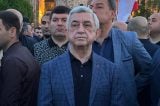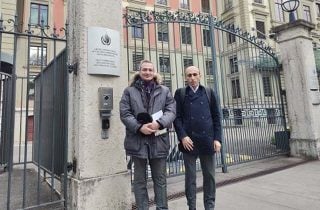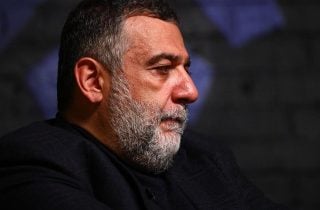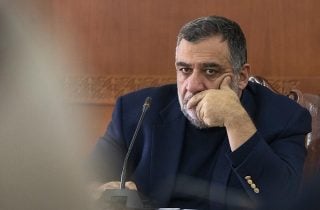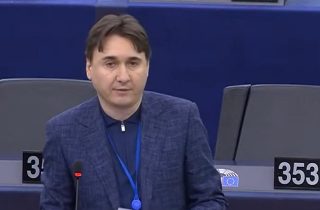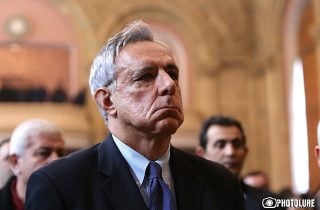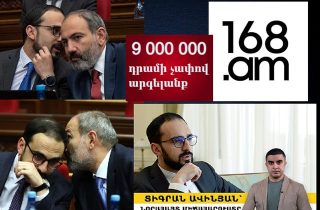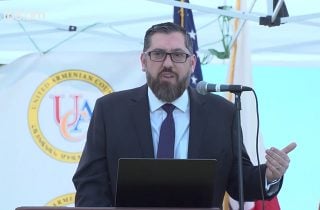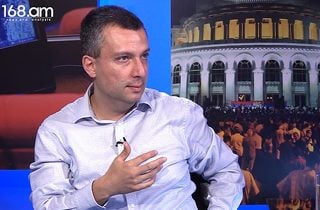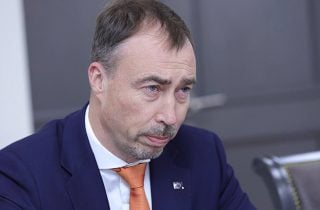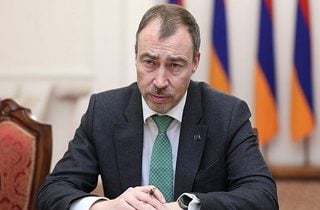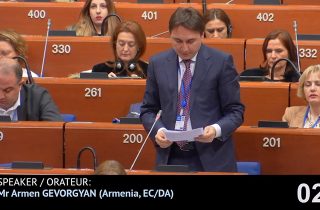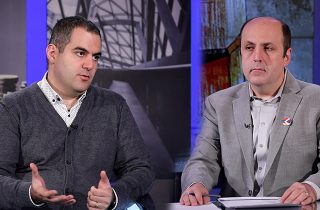Main Messages and Results of Negotiations in Vienna
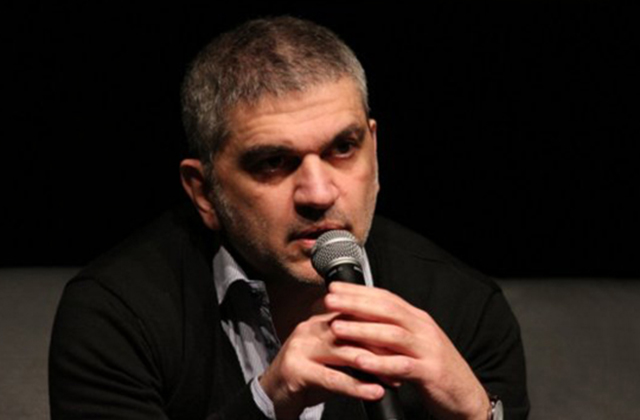
Interview with Kayts Minasyan, analyst at the Center of Strategic Studies of France.
Mr. Minasyan, due to OSCE MG productive efforts presidents of the two countries have met after the wide-scale military operations unleashed by Azerbaijan on April 2. According to the released statement an agreement has been reached to take steps for installation of investigative mechanisms, increase of capabilities of the team of OSCE MG presiding Co-chair representative, as well as possible resumption of negotiations for the conflict settlement. On account of the fact, that the presidents have met Federica Mogherini and John Kerry separately, on the whole, what’s your assessment to negotiations in Vienna? What did they give to the Armenian side?
A few observations should be made while assessing Vienna negotiations. Firstly, these meetings were important from the viewpoint of resumption of negotiations, that diplomats launched the diplomatic process, and meeting in Vienna has somewhat refreshed it.
Secondly, it was important that ministers of foreign affairs—Kerry, Lavrov and Desir, were present at the meeting, which showed that the governments highlight this issue, it was a pressure towards both Azerbaijan and Armenia, in particular, towards Baku.
Thirdly, it was reconfirmed that 1994-1995 ceasefire agreements are in force, and they are crucial for Armenia and Nagorno-Karabakh Republic. The fourth point is that greater importance and power was given to OSCE MG as an international representative on the conflict zone.
The fifth point is that investigation mechanisms have been highlighted by the Co-chairs and ministers of foreign affairs, which means what Armenia wants is being partially satisfied, or at least, is being stated, that there is an accord regarding that issue.
The sixth point is the fact that there is no military settlement to the conflict—only peaceful, diplomatic and political one.
To conclude, at least on paper, on statement level, as Serzh Sargsyan said, today’s results are “normal” and satisfactory. Of course, NKR authorities weren’t involved in the negotiations, and surely, positions taken by the Azerbaijanis are under control, and in fact, nothing has been said against Azerbaijan as an aggressor state, however, the results give ground to conclude, that the Co-chairs know who initiated the war, as they highlight installation of investigative mechanisms, which was a condition put forward by the Armenian side. Azerbaijan didn’t gain much of this, as both on the frontline and on diplomatic arena, just the contrary, the fact was confirmed that Russia, France and the USA don’t want a war in the region. And the seventh point is that this was an indirect message to Turkey: not to interfere, and not to play that bad game with Karabakh.
Should we suppose that two of the three conditions put forward by Serzh Sargsyan have been implemented?
We need to see how the statement in Vienna is going to be implemented, i.e. what has been enshrined in the document, how will it be operated and whether Kasprzyk will have wider liabilities, when the process will be implemented—in a month, and when will the Co-chairs meet again, as it has already been touched upon?
We may say, that at this stage results are satisfactory to Armenia, as some conditions of the Armenian side have been satisfied. The point is whether they’ll be implemented or not. Another issue is whether Aliyev will use them or not, as we know, Aliyev has the habit of saying “yes”, and acting differently.
I want to stress, that France, the USA and Russia agreed on peace in the region, they don’t want war, as there are wars and crisis in the Ukraine, Syria, thus, they don’t want other fronts.
There is an impression that Moscow, which intended to reach the position of an uncompetitive leader through its policy in the region, by sharpening the situation in the Line of Contact, calming it down, blocking American initiatives, seemingly realized that it isn’t able to settle the issues in the region alone. Moscow seems to agree on working with the West. What do you think of this?
I can’t say whether that impression is right or not. It’s clear, that Russia highlighted the fact, that Turkey didn’t interfere with the regional conflict.
Russia’s positive cooperation with the USA and France in this issue shows, that all the Co-chairs want peace and that nobody interfered with the conflict issues form outside. Here three points are noteworthy. Firstly, the three states don’t want war in the region. Secondly, ties with Turkey aren’t well enough—it refers both to USA-Turkey and Turkey-Russia relation. And thirdly, Iran’s future, as there are new programs and perspectives around Iran, they pass through the Caucasus, thus, its safety is important. We may say that efforts by Aliyev didn’t lead to results, just the contrary.
It’s also a positive point, that the new meeting will be launched in June. It’s for the first time that the Co-chairs act this way, as formerly it was not being stated on the forthcoming meeting. At least we know now that a new meeting will be held between the presidents, which is positive, and dynamics and pressure is being formulated towards the sides.
Is that possible, that Azerbaijan, realizing that Russia starts acting with the West, may go to a compromise and reject the so-called “Russian plan,” which is being repeatedly touched upon?
It soon to speak of it. We need to see what reflection Vienna negotiations will have both in the Co-chairing and conflicting states. I’m not speaking of “Lavrov plan” as they say either it exists or not. There is no clarity in this regard.
By Araks Martirosyan






